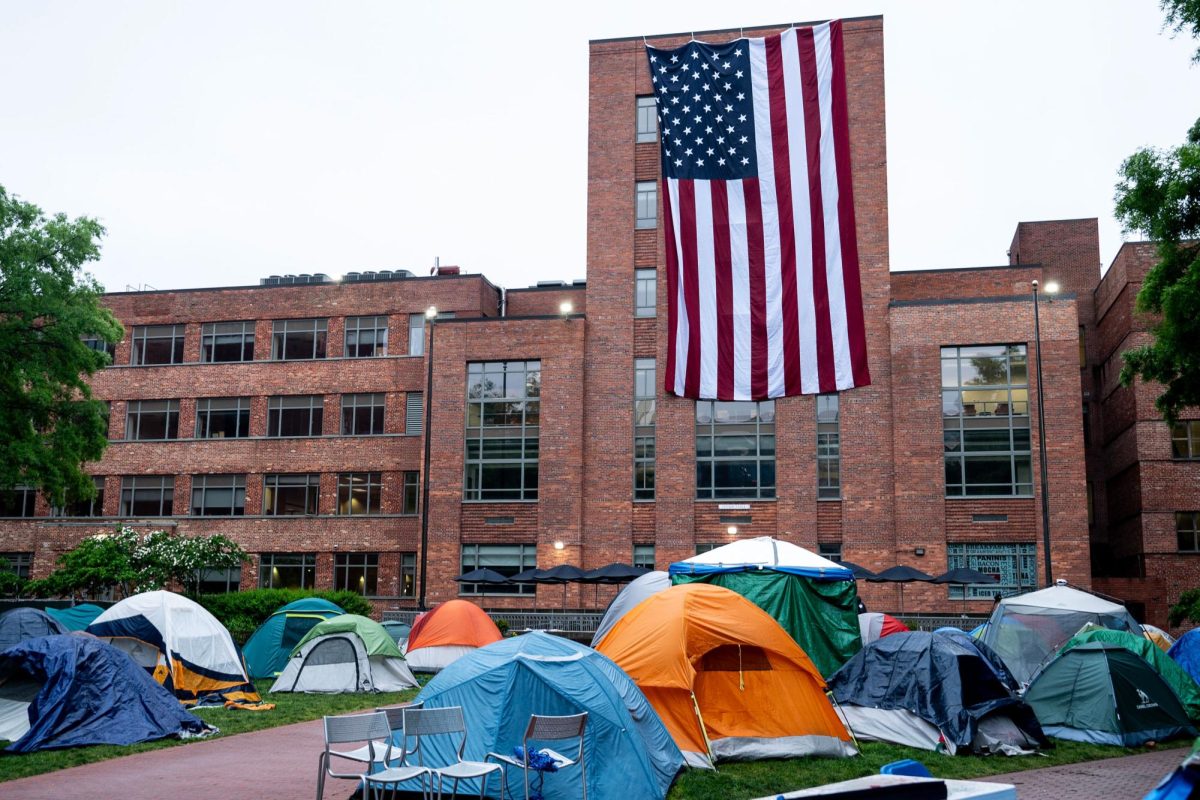GW and other private universities could soon see a surge in veteran enrollment thanks to a new benefit bill set to fully go into effect this summer.
The Forever G.I. Bill, or Harry W. Colmery Veterans Educational Assistance Act, offers new benefits like expanded tuition support and eliminates the time limit for veterans to use educational aid. Student veterans at GW said the new bill will make a college education more affordable, resulting in more veterans attending private universities.
The new provisions, passed last August and signed into law by President Donald Trump, officially went into effect at the start of the new year, but veterans won’t be able to use the expanded aid until the fall semester.
Andy Sonn, the director of the Office of Military and Veteran Students Services, said the office is planning a webinar about the extended benefits later in the spring but is waiting for more information from the Department of the Veterans Affairs.
“For many of the provisions, we are awaiting guidance from the U.S. Department of Veterans Affairs on the specific implementation plan and what they will mean for students,” Sonn said in an email.
The bill enacts new measures that aim to help veterans afford a college education, including eliminating a 15-year time limit to use aid after January 2013. The bill will also expand eligibility for the Yellow Ribbon Program, a federal program that matches GW tuition support for veterans and provides extra money for STEM degrees that may take more than four years to complete.
Johnny Gadea, an active duty staff sergeant in the Marine Corps and vice president of GW Veterans, a student veterans advocacy group, said it will allow student veterans more of a choice as to where they want to attend school because the expanded eligibility makes more schools affordable.
“It would open up pretty much every university to any military member that wants to get their education,” Gadea said.
He said that previously many veterans who wanted to attend private universities like GW instead had to settle for public schools like George Mason University because they were more affordable.
Gadea said the new bill will enhance GW’s reputation as a favorable university for veterans because of the expanded Yellow Ribbon program. The program launched at GW in 2009 and received a funding boost in 2016.
Jesse Robinson, a U.S. Navy veteran and the president of GW Veterans, said the Forever G.I. Bill will continue the trend of increased veteran enrollment at universities that began with the Post-9/11 G.I. Bill, enacted in 2008.
There are more than 1,800 veterans at GW, according to the GW Veterans website.
Robinson said he expects to see an even greater amount of older vets pursuing degrees beyond a bachelor’s degree because of the elimination of the 15-year expiration date of G.I. Bill benefits. He said 60 percent of GW’s student veteran population is graduate students, and that population will likely grow.
“There’s older veterans who weren’t able to use their benefits before and now they can, so if those benefits don’t have an expiration date then there’s definitely going to be more graduate and advanced programs that people are going to be seeking degrees in,” he said.
Robinson said the Office of Military and Veteran Student Services emailed student veterans about the expanded eligibility for benefits after the bill passed in August.
Ian Hourican, a junior in GW Veterans, said it’s important to start informing veterans of the support available to help finance their education while still on active duty.
“I think it starts as soon as they separate from the military, starting to educate from there and then when they start college being as clear and as transparent as possible is beneficial,” Hourican said.
The anticipated growth in enrollment comes as the veterans office has been criticized this academic year after a number of staff departures left student veterans concerned about the future of the program.
Kristofer Goldsmith, an Iraq War veteran and the founder and chairman of High Ground Veterans Advocacy, who helped advocate for the new bill in Congress, said doing away with the 15-year expiration was the most important measure in the bill.
“When you rob a veteran of their educational opportunity, you’re robbing the economy and the taxpayers of a more productive citizen,” Goldsmith said. “This bill was tremendous and it will be marked down in the arc of history of the veterans movement as a pivotal moment,” he said.
Todd Kennedy, the military and veterans program administrator at San Diego State University’s Joan and Art Barron Veterans Center, said he doesn’t think there will be any differences between how private universities like GW and public institutions implement the new bill.
While the bill is an improvement, he said there may be some “hiccups” that aren’t recognizable until it fully goes into effect.
“When it’s being implemented, that’s when you’re always going to identify something that wasn’t thought of or that you’re going to have to work through,” he said.





